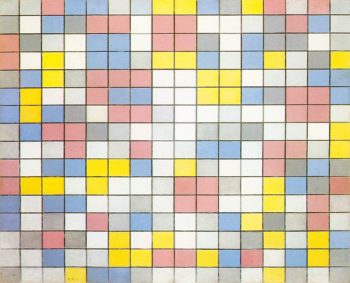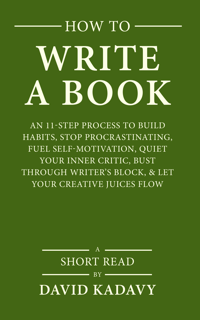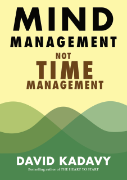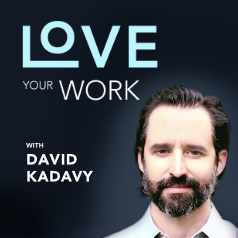Subscribe to blog updates via email »
11 Simple Ways to Be 100x More Effective Than Most People – Love Your Work, Episode 228

To get exceptional results, you need to do exceptional things.

WANT TO WRITE A BOOK?
Download your FREE copy of How to Write a Book »
(for a limited time)
Most things that are normal are normal only because very few people can resist them.
Just because it’s normal, doesn’t mean it’s good for you. It often means the opposite.
It’s like the Ancient Chinese proverb says, “If five million people do a foolish thing, it is still a foolish thing.”
Listen to the Podcast
- Listen in iTunes >>
- Download as an MP3 by right-clicking here and choosing “save as.”
- RSS feed for Love Your Work
Don’t let them get a piece of you
If you want to carve out your unique place in this world, you need to rise above the noise that other people succumb to.
Which means that you have to ruthlessly eliminate the self-destructive things that most people do.
The economy runs, like a flywheel, off of exploiting our weaknesses. Sell us addictive and unhealthy substances, then you can sell us drugs to treat the diseases they cause. Hold our attention with news that convinces us we can’t trust one another, then you can sell us suburban developments and home security systems. Then there’s even more attention leftover to sell to advertisers, because our social isolation makes us bored and lonely.
Getting us to do things that aren’t good for us is great for the Growth Domestic Product.
We’re so vulnerable to these things that if you can cut out the things that break you down, and replace them with the things that build you up, you can be way more effective than most people.
I say you could be one hundred times more effective than most people.
Here are eleven things you can do to be one hundred times more effective than most people.
Before I go further, I want to acknowledge that this list really pisses some people off. I posit that it threatens their self-perception.
I’m not saying you’re a bad person if you do or don’t do these things. I’m saying you’d be better off if you did all of these things. Let’s be honest — it’s darn near impossible to do all of these things. I know I don’t. This is just the list I aspire to.
Also, some people hear this list and think it sounds like a boring life. I would encourage those people to get a life — I’ll explain at the end of this episode.
Okay, on with the list.
1. No sugar
Sugar is an addictive substance. Sugar stimulates dopamine, and the more dopamine you stimulate, the more dopamine you need in order to feel stimulated. If you want to hear more about that, listen to Robert Lustig in episode 186. It is downright criminal how much sugar surrounds us every day. The last time I was in a hospital, the only things in the vending machine were products filled with sugar — in a hospital.
2. No alcohol
Again, why is this normal? Just look at how many bars and liquor stores are on every city street. At some point in my 20’s I realized that each Saturday night I was regularly spending the equivalent an entire working day going from bar to bar — not to mention the way that drinking affected me the next day (and likely throughout the week). You can accomplish a lot if you cut out alcohol.
I’m lucky enough to not be addicted to alcohol, but economist Tyler Cowen shared an interesting perspective on this podcast: that alcohol is so harmful to much of the population — those who are addicted to alcohol — that the only responsible thing to do is to not drink, so it won’t be such a normal thing anymore.
3. No caffeine
This one is hard for the coffee lovers. Caffeine, again, is an addictive substance. What happens when you’re addicted to something? You don’t use it, it uses you.
The more caffeine you use, the more caffeine you need, until you simply can’t get enough. Many people don’t realize that their caffeine use is at the root of other conditions, such as anxiety, depression, high blood pressure, even schizophrenia.
Additionally, using caffeine, even in the morning, can reduce the quality of your sleep that night — whether you know it or not.
4. 8 hours of sleep a night
Speaking of sleep, one of the best things you can do for your health and well being is get enough sleep. Sleep is especially important for creativity: To have great ideas, you need to have knowledge to connect into great ideas. To have knowledge, you need to form memories. To form memories, you need to sleep well. Yet another reason to cut out caffeine. Sleep is the new coffee.
5. Throw your TV in the garbage
According to Neilson, Americans watch an astounding four hours a day of television. Imagine everything you could do in four hours a day.
I think there’s a neurological component to this, too. As someone who watches very little TV, when I do finally see TV, it’s jarring. The way people interact is childish, everything is broken down for short attention spans. Even if you do something productive while watching TV, I bet you would do it better if you would turn it off.
6. Delete social media from your phone
Social media can be fun and valuable. Trying to function in this world with no social media accounts is a tall order (though some people manage to do it). A good compromise is to delete social media from your phone. Only use it on your computer.
The danger of having social media on your phone is all of those pockets of time and focus that it steals from you. When you’re waiting in line, or on the bus, or just lounging on the couch, it’s way too easy to go straight to social media. If you must be on your phone, why not read a book, or jot down some notes for your next creative project in a text file?
7. Keep your phone in silent mode
A great way to keep your phone from sucking up your time and attention is to simply keep your phone in silent mode, or “Do Not Disturb.” This, in addition to eliminating as many app notifications as possible.
Check your phone on your schedule, not on your phone’s schedule. If you’re concerned about emergencies, you can set up certain contacts to bypass silent mode.
8. Read 1 hour a day
It’s a lot easier to cut out lots of attention-stealers, such as social media and television if you replace them with an attention cultivator. Reading in long form, such as books or long articles, cultivates your ability to focus, which makes it easier to focus.
I recently experimented with cutting out reading during a media fast. It was a valuable exercise, but I did eventually notice a drop in my ability to focus. Now that I’m back to reading an hour a day, I’m re-gaining that focus.
9. Meditate 15 minutes a day
Meditation rewires your brain for focus. Meditation makes you more aware of what’s happening in your body and mind. And self-awareness boosts creativity.
It may not make sense that by sitting and doing nothing for fifteen minutes a day, you can be more creative. But when you let your thoughts settle, each action you take can be more purposeful.
I’m going to go out on a limb here and say that if you don’t want to meditate, try simply doing nothing for fifteen minutes. Just stare at a wall, or look at birds. Much of the benefits people see from meditation come simply from what they’re not doing. So, try doing nothing.
10. Journal 10 minutes a day
I think of writing as like training wheels for thought. When you write down your thoughts, whether that’s in a journal, on a scratch file, or on an AlphaSmart, it helps solidify those thoughts. Like meditating, taking some time to journal will help you take more decisive action in your life and work.
It doesn’t have to be fancy. You’ll be surprised what mental clarity you can achieve by writing down even your most mundane thoughts.
11. Get therapy
When I published this list on social media, some people proclaimed that they don’t need therapy, and that therapy is “for crybabies.”
I don’t know where these people got their ideas of what therapy is — probably from watching too much TV. Therapy, I’m thinking of Cognitive Behavioral Therapy in particular, is not about being a “crybaby” or even “venting.” It’s hard work, but it helps undo thought patterns at the root of self-destructive behaviors. It also eliminates the feelings that trigger those self-destructive behaviors. If you try it and stick with it, it can be like magic. One day, you just find yourself not reacting in the way you once did to something that used to make you feel sad or anxious.
Here’s the list again:
- No sugar
- No alcohol
- No caffeine
- 8 hours of sleep a night
- Throw your TV in the garbage
- Delete social media from your phone
- Keep your phone in silent mode
- Read 1 hour a day
- Meditate 15 minutes a day
- Journal 10 minutes a day
- Get therapy
Discipline is a byproduct of meaning
Now some people protest that following this list sounds like a boring life. I think that just shows how deep the cultural programming is that we should for some reason seek pleasure at every turn, and avoid pain whenever possible.
As someone who follows much of this list, most of the time, I can tell you I don’t find my life boring at all. But that’s because I have meaning. Discipline, if that’s what you want to call this, is not the cause of meaning — discipline is the byproduct of meaning.
“Get a life,” by that I mean find meaning in your life, and the opportunity costs of not being disciplined skyrocket.
How do you find meaning? Well, that can be a future episode. Let me know if you want to hear about it.
Image: Composition with Grid IX, Piet Mondrian
My Weekly Newsletter: Love Mondays
Start off each week with a dose of inspiration to help you make it as a creative. Sign up at: kadavy.net/mondays
Join the Patreon for (new) bonus content!
I've been adding lots of new content to Patreon. Join the Patreon »
Subscribe to Love Your Work
Listen to the Podcast
- Listen in iTunes >>
- Download as an MP3 by right-clicking here and choosing “save as.”
- RSS feed for Love Your Work
Theme music: Dorena “At Sea”, from the album About Everything And More. By Arrangement with Deep Elm Records. Listen on Spotify »


